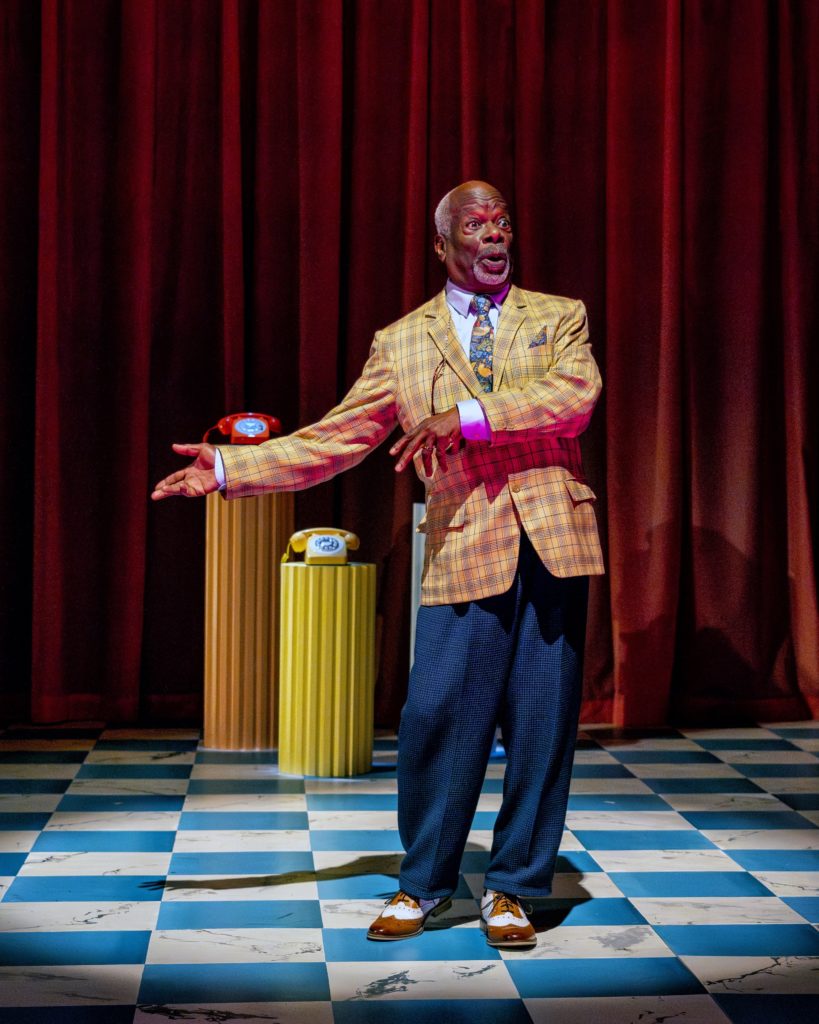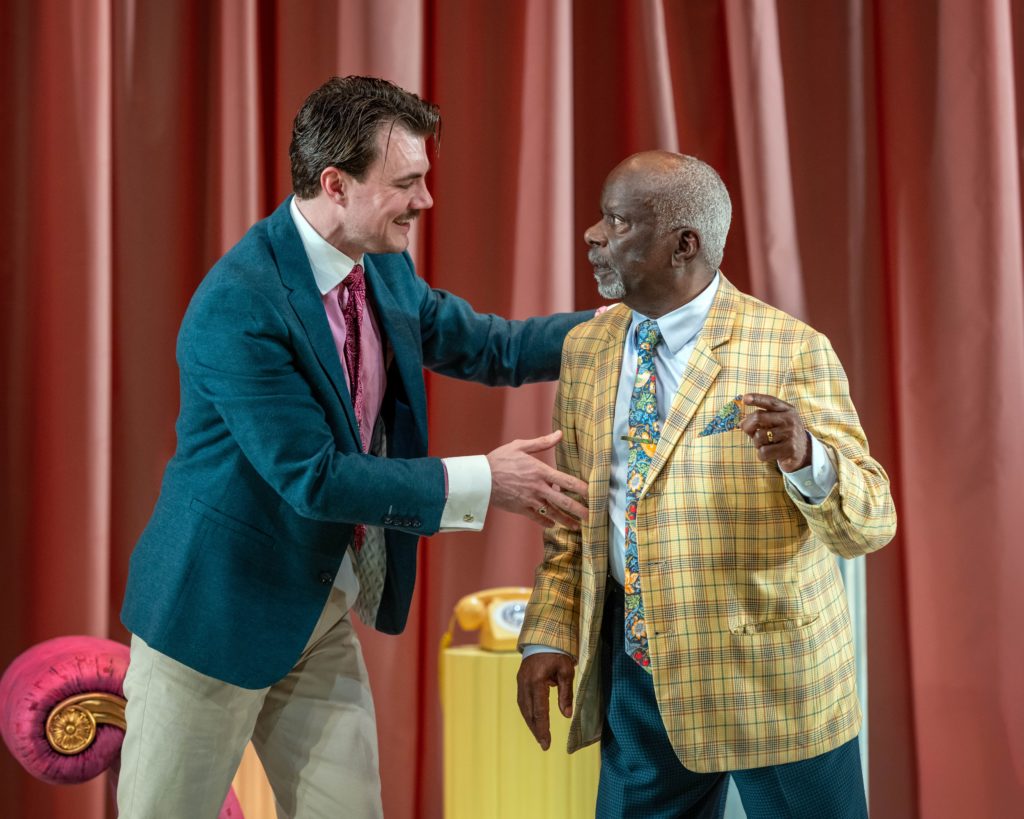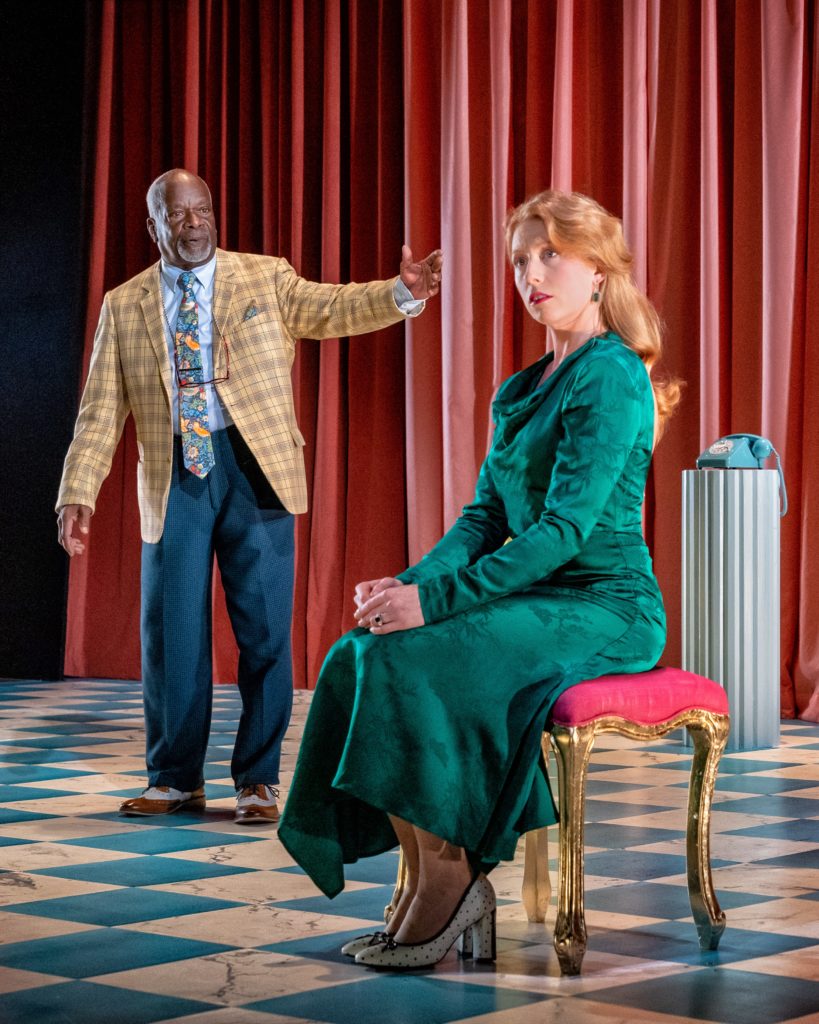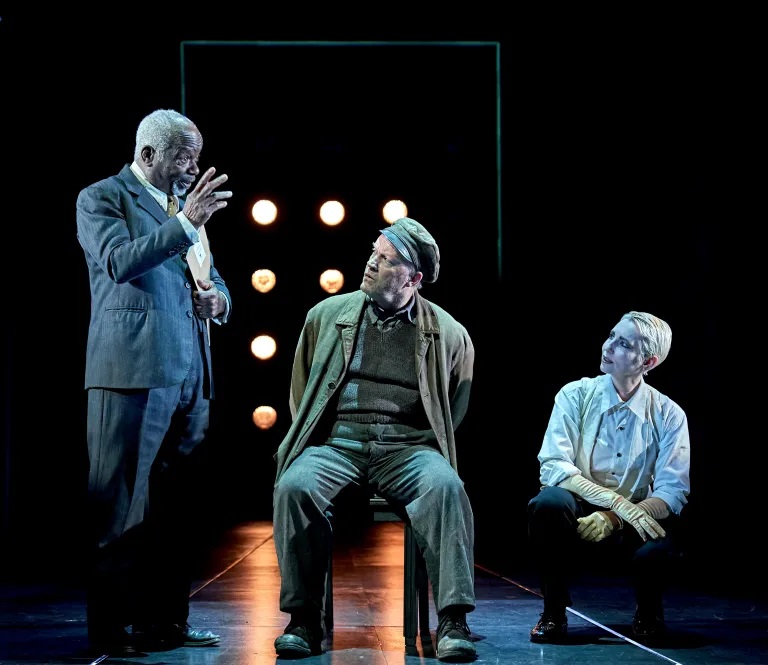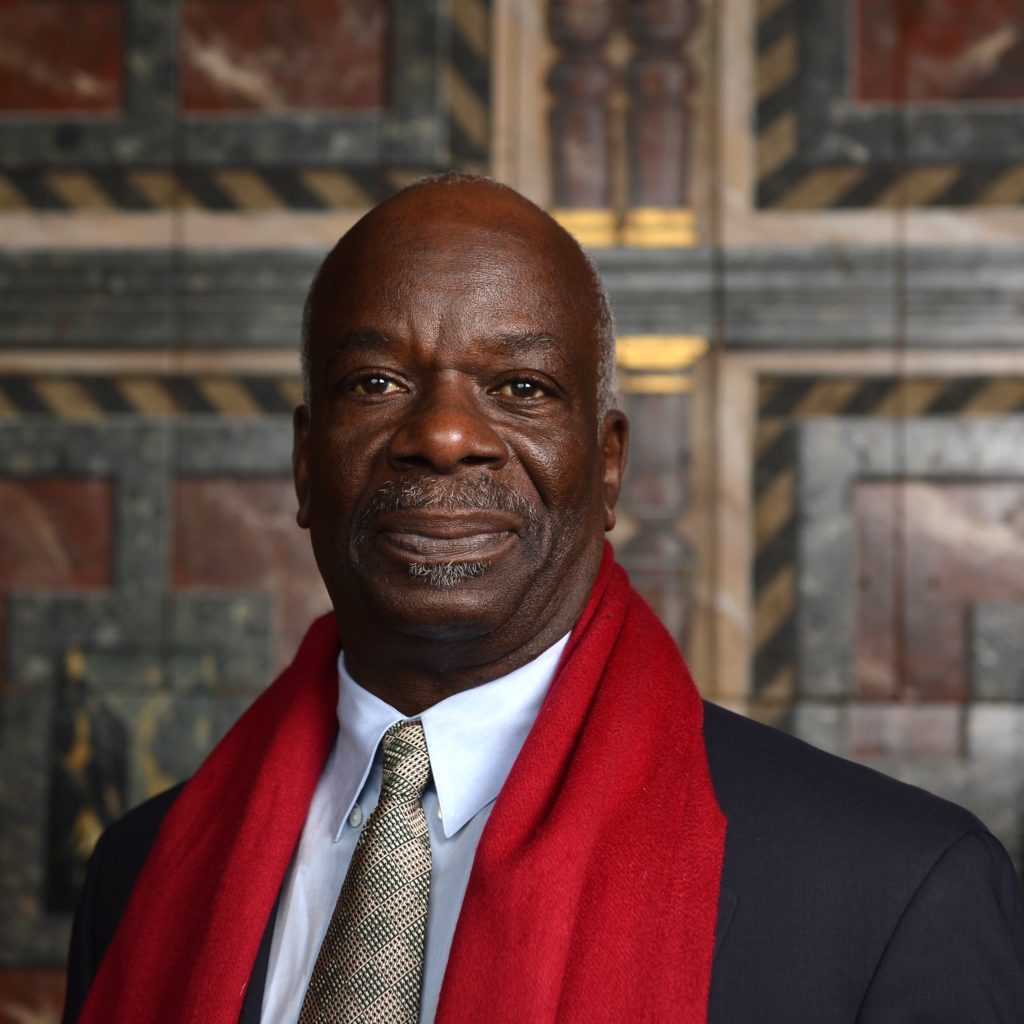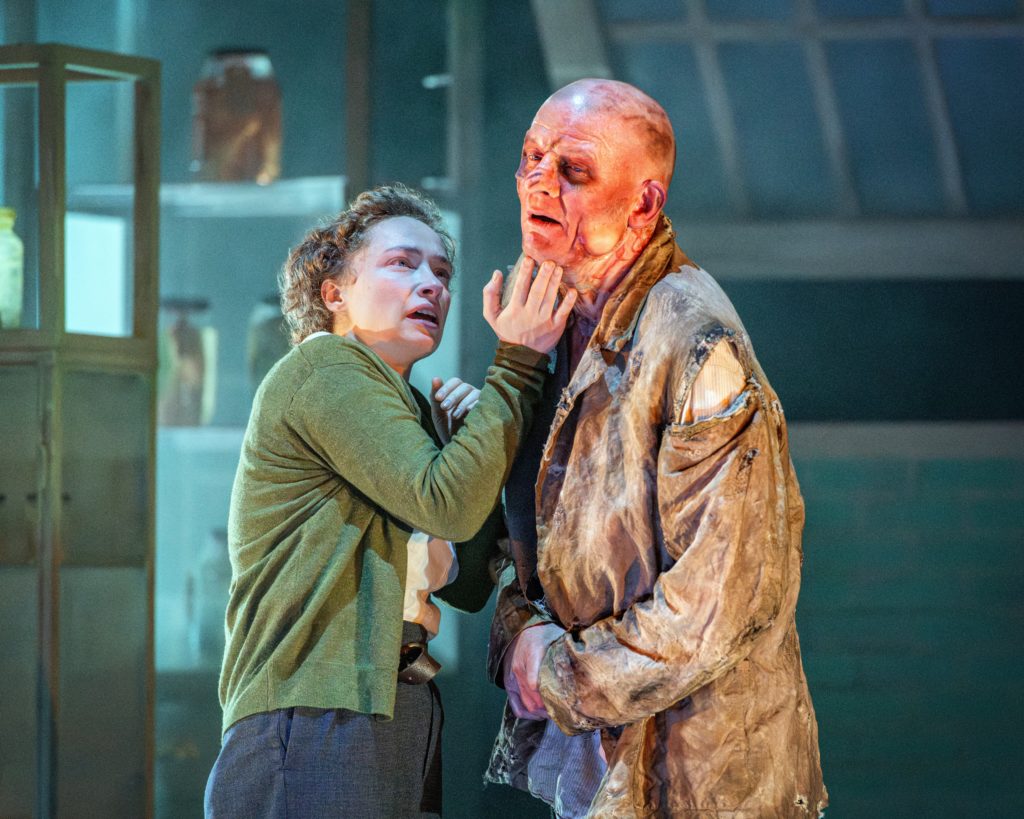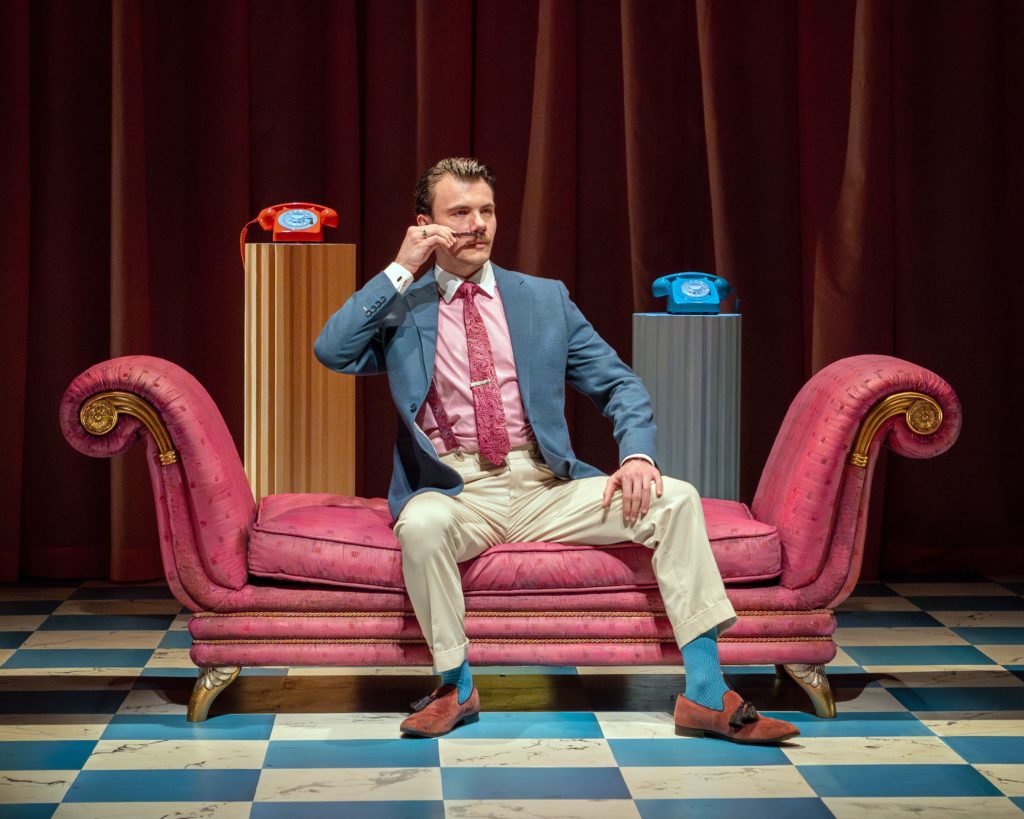
GOSSIP never goes out of fashion, whether in the 1770s, 2020s or 1950s, the new setting for Tilted Wig’s production of Richard Brinsley Sheridan’s Georgian comedy of manners The School For Scandal.
“We wanted to allow our audience to get to as close to the heart of the play as possible and sometimes the baggage that goes with 18th century theatre, all the wigs and ruffles, can feel like a barrier,” reasons director Sean Aydon, ahead of next week’s run at York Theatre Royal.
“The actors of the 1770s would be wearing the height of fashion and we wanted our audiences to get a sense that these people were wealthy, stylish and take great care of their personal appearances.
“However, it didn’t feel right to set it in the modern day as the world of the play has very different rules to our own, particularly with regards to marriage as a financial agreement.”
Sean continues: “We felt the middle of the 20th century would be a great place aesthetically as our audience could enjoy the vibrant colours and evocative textures, appreciating its style while knowing we are not in our 21st century world.
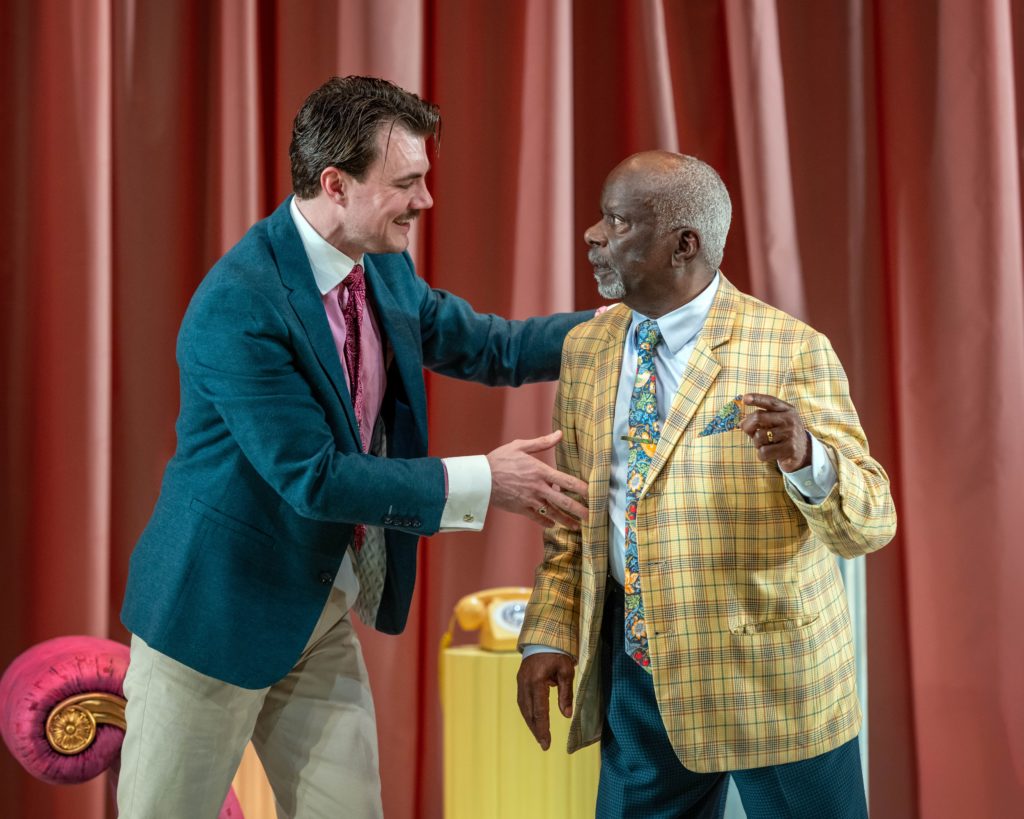
“It also allows us to play with some recognisable comedy tropes from the Fifties, including some rather brightly coloured telephones.”
Aydon’s cast is led by Joseph Marcell, once the butler in NBC sitcom The Fresh Prince Of Bel-Air, now the lordly, wealthy aristocrat Sir Peter Teazle, who believes his young wife is sleeping with someone else. Not true, but if her husband believes it, she may as well give it a go.
Enter into the scandalous scenario one Joseph Surface, played by Alex Phelps, whose adroit comedy talents last graced the York stage in February 2023 in Tilted Wig’s touring collaboration with the Theatre Royal in the circus-themed Around The World In 80 Days in the dual roles of the Ringmaster and the unscrupulous globe-trotting Phileas Fogg.
Earlier Alex had stolen the show when playing Sir Andrew Aguecheek with such brio in Joyce Branagh’s Jazz Age take on Twelfth Night for Shakespeare’s Rose Theatre at the Eye of York in June 2019.
Introducing his latest role as Joseph Surface, Alex says: “Lots of things are going on beneath that surface. He’s selfish, he’s hypocritical, he’s vain, he’s manipulative. I’d say he would think he’s quite charming too, which is a deception. That’s his undoing in a way, thinking he’s got it all going on, but then it all begins to unravel.”
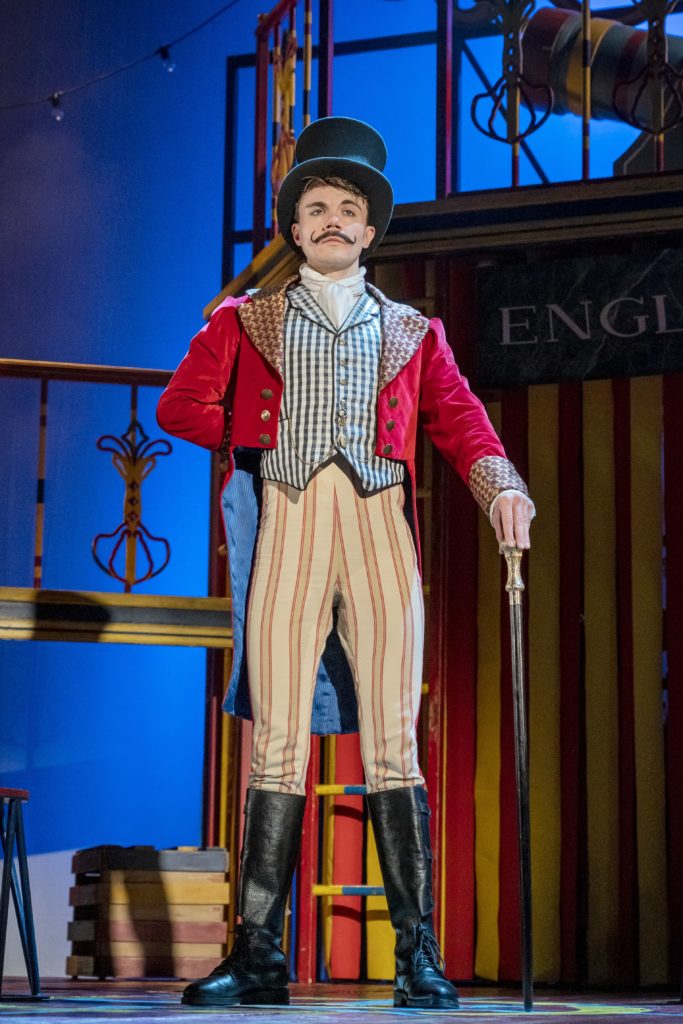
Phelps’s Surface succeeds in convincing Sir Peter that he is the epitome of goodness. “Initially it goes incredibly well for him, and he manages to get inside Sir Peter’s head, but then he tries to seduce his wife.”
Wrong move. “The reason I love playing this kind of character is that they have so far to fall. That lovely twist of someone thinking they’re the best thing in the world and convincing everyone else of that too, but then they begin to fall very quickly, as they try to be high status but do so in a way that betrays them. When you play against that barrier, it becomes funnier.”
Alex is working with director Sean Aydon for the first time. “It’s been really wonderful,” he says. “We discovered that Sean had been in the third year at my drama school – Manchester School of Theatre – when I was in my first year, but you don’t really mix with the third years, who are busy doing plays, so I didn’t get to know him there. It’s only now, ten years later, that we’ve done that.”
Alex has revelled in Sean’s adaptation. “The language has stuck entirely to its period, with Sean not trying to change its 1777 style. Sheridan’s razor-like wit really comes through, but what Sean has done is set it in 1950 with a minimalist set with three telephones on plinths,” he says.
“Like Richard Bean did so well with One Man, Two Guvnors [relocating Carlo Goldoni’s play from 1746 Italy to 1963 Brighton], in Sean’s version, 18th century social conventions for men are still there in 1950, but what Sheridan did was to give women incredible power in the play: they are the driving force.”
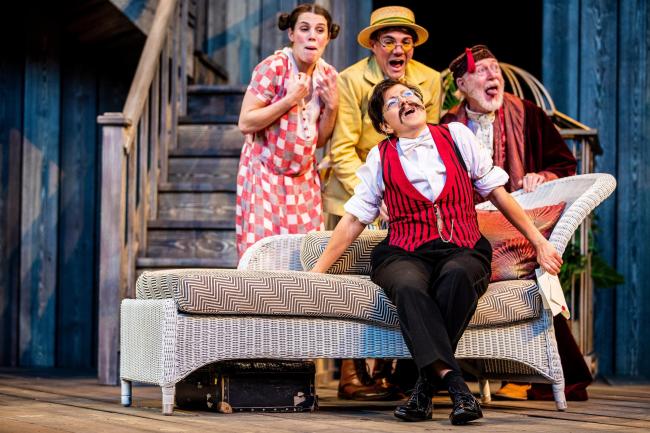
Working on stage with Joseph Marcell has been rewarding too. “I’m blessed in the sense that each night I get back to sit back and learn from him and his skills and his crafts. He’s been at the RSC [Royal Shakespeare Company], on the board at Shakespeare’s Globe, and he has such incredible amount of experience, I would be a fool, as someone who loves this craft, not to watch him and learn from him,” he says.
“Sometimes, I’ll sit there with puppy dog eyes, thinking, ‘gosh, I’m on stage with one of the greats, someone with comedy in his bones’. He’s a lovely man and a great actor.”
Alex has learned to be alive to the unpredictability of live performance, how a show, especially a comedy, can change from night to night. “When you’re on stage, all your senses are heightened; you listen to see if the audience is coming with you, if a laugh makes something work. It’s incredibly elusive because it’s different every night. Like a bar of soap, sometimes it slips, but sometimes you catch it!”
Tilted Wig in tandem with Malvern Theatres and Theatre by the Lake, Keswick, present The School For Scandal, York Theatre Royal, April 23 to 27, 7.30pm plus 2pm Thursday and 2.30pm Saturday matinees. Box office: 01904 623568 or yorktheatreroyal.co.uk.
Copyright of The Press, York

